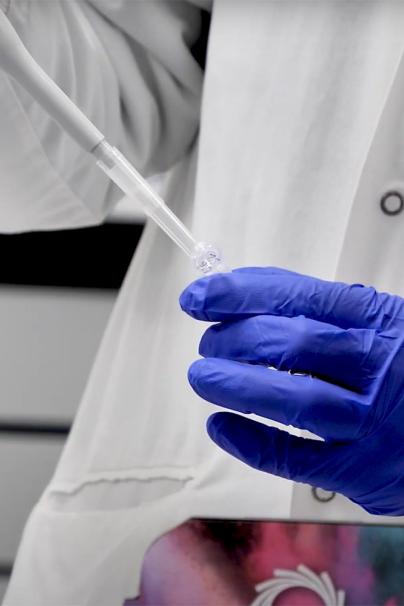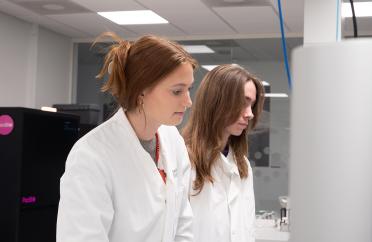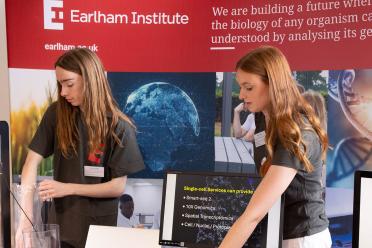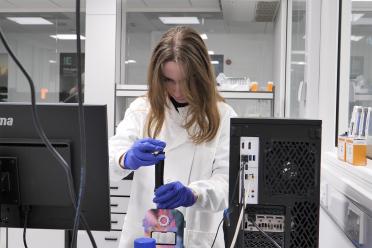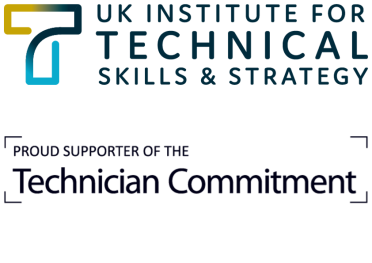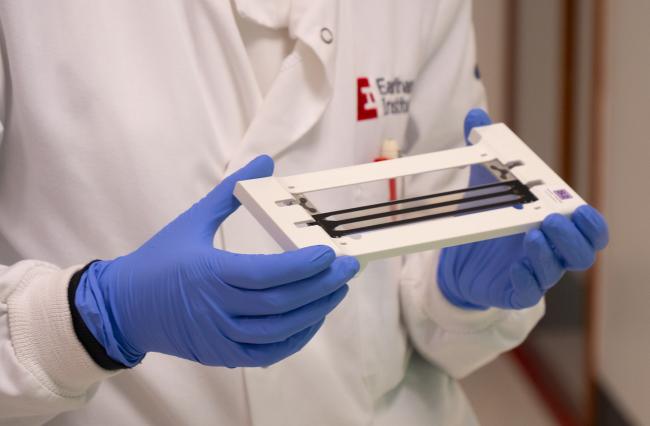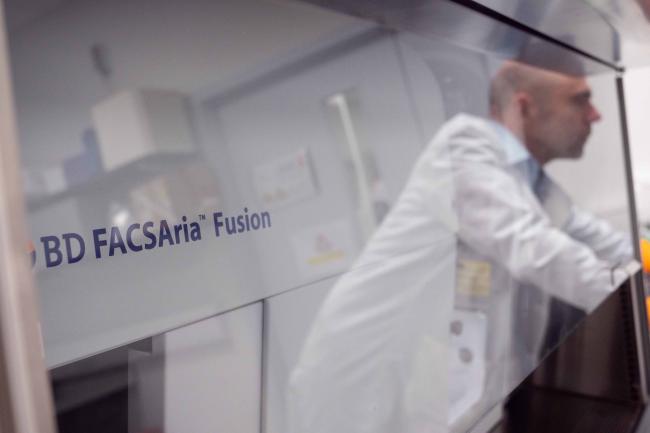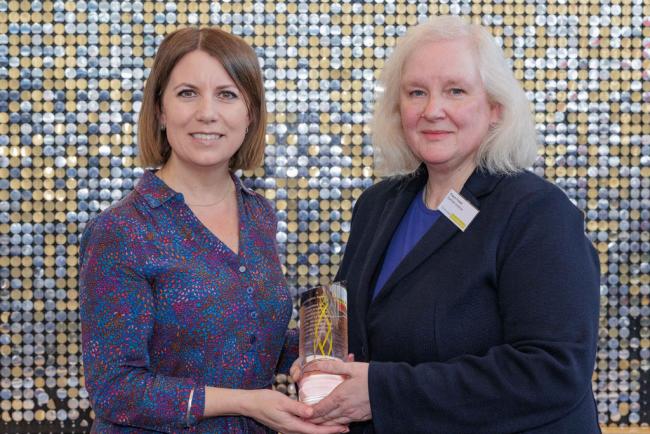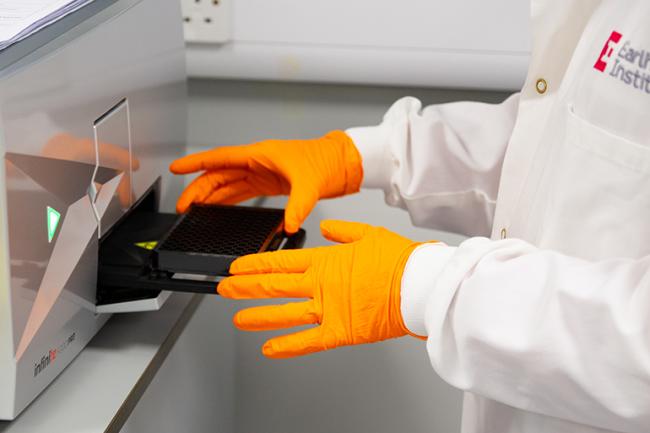T Levels are equivalent to three A-Levels and combine classroom learning with industry placements. They give students entry into skilled employment, an apprenticeship or further or higher technical education as well as invaluable work experience.
Dr Karim Gharbi, Head of Technical Genomics, says a highlight was watching students confidently guide their parents on a tour of the lab - just three weeks into their placement.
“It was the first time I realised they had really absorbed all the information and skills that had been shared with them,” he says. “Seeing these young technicians explain the lab and their work to their parents was a personal highlight.”
T-Level students also have the opportunity to present their work to the wider institute during a weekly science seminar, developing important communication and presentation skills.
And, as part of the 2024 NBI Accessible Science event, Rosie and Archie had the opportunity to interact with researchers, network with industry professionals, and showcase their work to both peers and members of the public.
“Two of our students were naturally quite reserved, but by the end, they were engaging effortlessly with others, their confidence truly flourished,” says Fiona Fraser, Senior Research Assistant and Technician Commitment Lead for EI. “These placements give them an opportunity to experience a career pathway that they might not have considered was an option for them.”
Dr Carolina Grandellis, Head of Earlham Institute Biofoundry, says she loved sharing her passion for using automation in engineering biology.
“Spending a month in the lab immersed in a cutting-edge scientific ecosystem was an incredible opportunity,” she says. “I wish I’d had this kind of experience at their age.”
“The students gained hands-on confidence and a taste of breakthrough science and innovative technologies, led by professional researchers. Hopefully, we’ve inspired a few future scientists along the way.”
